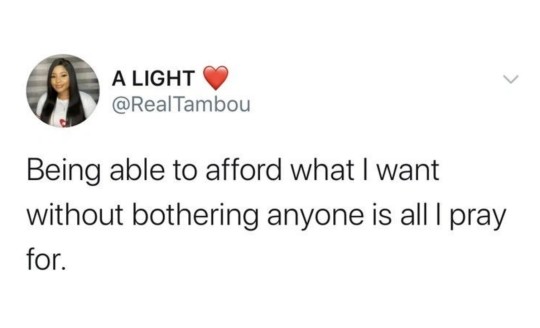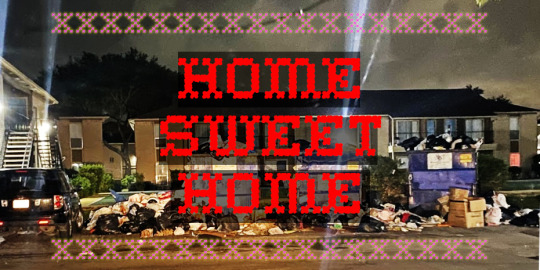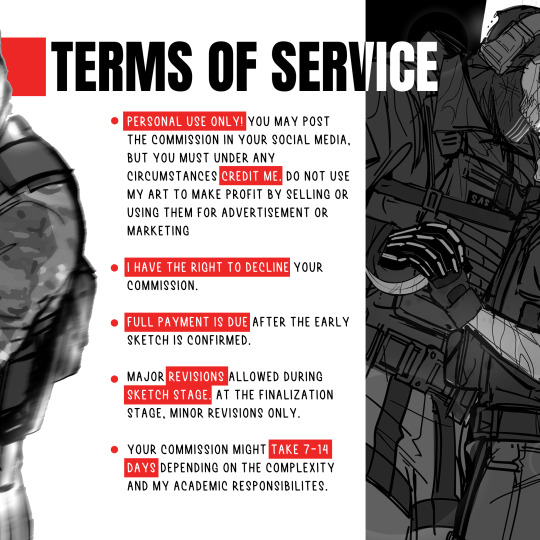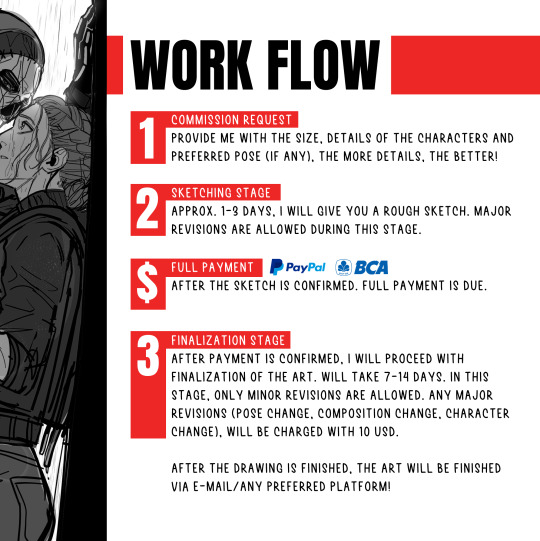#financial independent
Text
Journey Towards Financial Independence: Future-Proofing Your Finances
Embarking on a journey towards financial independence is a transformative experience. It requires careful planning, disciplined saving and investing, and a long-term perspective. In this blog post, we will explore the steps and strategies involved in future-proofing your finances to achieve lasting wealth and true financial independence.
Understanding the Concept of Financial Independence:
To begin our journey, we need to define what financial independence means and why it is important. We will explore the benefits and freedoms that come with it, as well as the mindset required to achieve this goal.
Building Strong Financial Foundations:
Before pursuing financial independence, it is crucial to establish a solid financial foundation. We will delve into the key components of this foundation, including budgeting, emergency funds, debt management, and building a strong credit score.
The Power of Long-Term Investing:
Investing is a fundamental part of future-proofing your finances. We will discuss the importance of a long-term investment strategy, diversification, risk tolerance, and the potential for compounding wealth over time.
Maximizing Income and Minimizing Expenses:
Increasing your income and reducing your expenses are key factors in accelerating your journey towards financial independence. We will explore strategies to boost your income, such as side hustles, career advancements, and passive income streams, as well as ways to cut unnecessary expenses and save more.
Strategies for Wealth Accumulation:
In this section, we will delve into various strategies that can help you accumulate wealth effectively. Topics covered will include retirement planning, investing in real estate, entrepreneurship, and the importance of continuously improving financial literacy.
Protecting Your Future:
Wealth preservation is equally important as wealth accumulation. We will discuss how to protect your assets through insurance, estate planning, and risk management, ensuring that your financial independence is safeguarded for the long term.
Embracing a Mindset of Financial Independence:
Achieving financial independence requires adopting a specific mindset. We will explore the importance of discipline, patience, perseverance, and continuous learning throughout your journey.
Conclusion:
Embarking on a journey towards financial independence is a life-changing endeavor. By future-proofing your finances through careful planning, saving, investing, and adopting the right mindset, you can achieve lasting wealth and the freedom to make financial decisions based on your passions and values. Start your journey towards financial independence now and take control of your financial future.
#DeFinance#Budget#Tax#Financial Analytics#financial analysis#Services#small business#financial independent
0 notes
Text
Disability benefits shouldn’t be tied to the income of a disabled person’s partner/spouse/parent.
Do you hear me?
DISABILITY BENEFITS SHOULDN’T BE TIED TO THE INCOME OF A DISABLED PERSON’S PARTNER/SPOUSE/PARENT.
This is the straight forward way to deprive a disabled person of their financial freedom and independence and trap them into possible abusive relationships.
#cripple punk#disability#cpunk#cripple#crip revolution#crip punk#disability justice#disability rights#disability pride#disability benefits#financial independence#actually disabled#disabled blogger
13K notes
·
View notes
Text
DP x DC Prompt #27
When Dick's parent's fell, his first thought was, "This can't be happening." His second thought was, "What's going to happen to me and my brother now?"
The answer? His brother was older than him, much older. Old enough that he could stay with the circus. But Dick? Dick couldn't stay with Danny. He was too young.
So Bruce Wayne took him in, offered to take Danny in too. Dick begged his brother to join him, but Danny didn't. He smiled at Dick, ruffled his hair, and told him he'd be waiting at the circus for when Dick returned. Promised to send postcards and letters.
Then he was gone. And Dick never returned to the circus.
#finemeal prompt#dp x dc#danny fenton#dick grayson#danny and dick are bio bros#bruce wayne adopts dick#but danny's just old enough to be independent#but not quite financially stable enough to support dick#i also think this is dick's view on what happened#and danny was torn up inside about leaving his brother behind#but was doing his best to make an awful situation tolerable#also?#they're both grieving something fierce#i think it's okay danny doesn't take dick in#but who knows how that affects their relationship#wonder twins#at least that's what my friend calls them#i guess they'd be wonder siblings huh?#wonder siblings#there we go
1K notes
·
View notes
Text

#black luxury#black girls winning#black girls in luxury#leisure#soft life#soft black women#rich black girls#rich black women#hypergamy#luxury lifestyle#wealthy lifestyle#svdaily#black tumblr#financial security#financial stability#freedom#current mood#law of abundance#law of attraction#independence#throught the month#on a whim#savings
2K notes
·
View notes
Text
Just saw a post about zevrans torturers in the fade being dalish elves that made me think about this.
I was listening to zevrans dialogue with the warden and other companions and zevran truly doesn't identify with or as basically any of the groups he could conceivably be a part of. He's left the crows so he's no longer a crow, he was rejected by the dalish and is not really a "true elf", he can't go back to being a kid in the brothel (last place he felt unconditional love). He's never had a lover which wasn't a contract or he didn't kill. He's just very dissociated from himself and everyone around him.
The only thing he consistently identifies as is being worth 7 gold coins. He says it to the warden more than once. He says it to some of the companions. My guys got 1 thing defining his self worth and it's that the crows bought him for 7 gold coins. And what does the warden give him to increase affinity? Gold bars. The warden is saying "You are worth so much more than what the crows paid for" in a quite literal sense. I'm emotional about the pixel man again.
#the bars also offer zevran financial security hes never had#he was a slave to the crows before this#i doubt they really paid him enough to start a savings account#the warden is giving him the ability to live independently#god zevran is such a good character thats some top tier writing and use of game mechanics#im gonna throw up#dragon age zevran#zevran#zevran arainai#dragon age origins#the warden
3K notes
·
View notes
Text
Why we don’t like it when children hit us back
To all the children who have ever been told to “respect” someone that hated them.
March 21, 2023
Even those of us that are disturbed by the thought of how widespread corporal punishment still is in all ranks of society are uncomfortable at the idea of a child defending themself using violence against their oppressors and abusers. A child who hits back proves that the adults “were right all along,” that their violence was justified. Even as they would cheer an adult victim for defending themself fiercely.
Even those “child rights advocates” imagine the right child victim as one who takes it without ever stopping to love “its” owners. Tear-stained and afraid, the child is too innocent to be hit in a guilt-free manner. No one likes to imagine the Brat as Victim—the child who does, according to adultist logic, deserve being hit, because they follow their desires, because they walk the world with their head high, because they talk back, because they are loud, because they are unapologetically here, and resistant to being cast in the role of guest of a world that is just not made for them.
If we are against corporal punishment, the brat is our gotcha, the proof that it is actually not that much of an injustice. The brat unsettles us, so much that the “bad seed” is a stock character in horror, a genre that is much permeated by the adult gaze (defined as “the way children are viewed, represented and portrayed by adults; and finally society’s conception of children and the way this is perpetuated within institutions, and inherent in all interactions with children”), where the adult fear for the subversion of the structures that keep children under control is very much represented.
It might be very well true that the Brat has something unnatural and sinister about them in this world, as they are at constant war with everything that has ever been created, since everything that has been created has been built with the purpose of subjugating them. This is why it feels unnatural to watch a child hitting back instead of cowering. We feel like it’s not right. We feel like history is staring back at us, and all the horror we felt at any rebel and wayward child who has ever lived, we are feeling right now for that reject of the construct of “childhood innocence.” The child who hits back is at such clash with our construction of childhood because we defined violence in all of its forms as the province of the adult, especially the adult in authority.
The adult has an explicit sanction by the state to do violence to the child, while the child has both a social and legal prohibition to even think of defending themself with their fists. Legislation such as “parent-child tort immunity” makes this clear. The adult’s designed place is as the one who hits, and has a right and even an encouragement to do so, the one who acts, as the person. The child’s designed place is as the one who gets hit, and has an obligation to accept that, as the one who suffers acts, as the object. When a child forcibly breaks out of their place, they are reversing the supposed “natural order” in a radical way.
This is why, for the youth liberationist, there should be nothing more beautiful to witness that the child who snaps. We have an unique horror for parricide, and a terrible indifference at the 450 children murdered every year by their parents in just the USA, without even mentioning all the indirect suicides caused by parental abuse. As a Psychology Today article about so-called “parricide” puts it:
Unlike adults who kill their parents, teenagers become parricide offenders when conditions in the home are intolerable but their alternatives are limited. Unlike adults, kids cannot simply leave. The law has made it a crime for young people to run away. Juveniles who commit parricide usually do consider running away, but many do not know any place where they can seek refuge. Those who do run are generally picked up and returned home, or go back on their own: Surviving on the streets is hardly a realistic alternative for youths with meager financial resources, limited education, and few skills.
By far, the severely abused child is the most frequently encountered type of offender. According to Paul Mones, a Los Angeles attorney who specializes in defending adolescent parricide offenders, more than 90 percent have been abused by their parents. In-depth portraits of such youths have frequently shown that they killed because they could no longer tolerate conditions at home. These children were psychologically abused by one or both parents and often suffered physical, sexual, and verbal abuse as well—and witnessed it given to others in the household. They did not typically have histories of severe mental illness or of serious and extensive delinquent behavior. They were not criminally sophisticated. For them, the killings represented an act of desperation—the only way out of a family situation they could no longer endure.
- Heide, Why Kids Kill Parents, 1992.
Despite these being the most frequent conditions of “parricide,” it still brings unique disgust to think about it for most people. The sympathy extended to murdering parents is never extended even to the most desperate child, who chose to kill to not be killed. They chose to stop enduring silently, and that was their greatest crime; that is the crime of the child who hits back. Hell, children aren’t even supposed to talk back. They are not supposed to be anything but grateful for the miserable pieces of space that adults carve out in a world hostile to children for them to live following adult rules. It isn’t rare for children to notice the adult monopoly on violence and force when they interact with figures like teachers, and the way they use words like “respect.” In fact, this social dynamic has been noticed quite often:
Sometimes people use “respect” to mean “treating someone like a person” and sometimes they use “respect” to mean “treating someone like an authority” and sometimes people who are used to being treated like an authority say “if you won’t respect me I won’t respect you” and they mean “if you won’t treat me like an authority I won’t treat you like a person” and they think they’re being fair but they aren’t, and it’s not okay.
(https://soycrates.tumblr.com/post/115633137923/stimmyabby-sometimes-people-use-respect-to-mean)
But it has received almost no condemnation in the public eye. No voices have raised to contrast the adult monopoly on violence towards child bodies and child minds. No voices have raised to praise the child who hits back. Because they do deserve praise. Because the child who sets their foot down and says this belongs to me, even when it’s something like their own body that they are claiming, is committing one of the most serious crimes against adult society, who wants them dispossessed.
Sources:
“The Adult Gaze: a tool of control and oppression,”
https://livingwithoutschool.com/2021/07/29/the-adult-gaze-a-tool-of-control-and-oppression
“Filicide,” https://en.wikipedia.org/wiki/Filicide
#repost of someone else’s content#medium repost#Alba M.#purity culture#ageism#adultism#youth oppression#childism#child abuse#parental abuse#youth rights#youthlib#youth liberation#parricide#nuclear family abolition#anarchism#note: I would consider reevaluating the demonization of adults who kill their parents too#many victims remain entrapped well into adulthood#there are still a lot of issues of economic dependency and control especially for young adults#and I don’t think such a totalizing power imbalance engendered in childhood is so easily levelled#even if an adult does become financially independent#likewise for adult victims of intimate partner abuse: also structurally made difficult for them to leave#even if not criminalized to the same degree#anti-abuser aktion
2K notes
·
View notes
Text
How finfluencers destroyed the housing and lives of thousands of people

For the rest of May, my bestselling solarpunk utopian novel THE LOST CAUSE (2023) is available as a $2.99, DRM-free ebook!

The crash of 2008 imparted many lessons to those of us who were only dimly aware of finance, especially the problems of complexity as a way of disguising fraud and recklessness. That was really the first lesson of 2008: "financial engineering" is mostly a way of obscuring crime behind a screen of technical jargon.
This is a vital principle to keep in mind, because obscenely well-resourced "financial engineers" are on a tireless, perennial search for opportunities to disguise fraud as innovation. As Riley Quinn says, "Any time you hear 'fintech,' substitute 'unlicensed bank'":
https://pluralistic.net/2023/05/01/usury/#tech-exceptionalism
But there's another important lesson to learn from the 2008 disaster, a lesson that's as old as the South Seas Bubble: "leverage" (that is, debt) is a force multiplier for fraud. Easy credit for financial speculation turns local scams into regional crime waves; it turns regional crime into national crises; it turns national crises into destabilizing global meltdowns.
When financial speculators have easy access to credit, they "lever up" their wagers. A speculator buys your house and uses it for collateral for a loan to buy another house, then they make a bet using that house as collateral and buy a third house, and so on. This is an obviously terrible practice and lenders who extend credit on this basis end up riddling the real economy with rot – a single default in the chain can ripple up and down it and take down a whole neighborhood, town or city. Any time you see this behavior in debt markets, you should batten your hatches for the coming collapse. Unsurprisingly, this is very common in crypto speculation, where it's obscured behind the bland, unpronounceable euphemism of "re-hypothecation":
https://www.coindesk.com/consensus-magazine/2023/05/10/rehypothecation-may-be-common-in-traditional-finance-but-it-will-never-work-with-bitcoin/
Loose credit markets often originate with central banks. The dogma that holds that the only role the government has to play in tuning the economy is in setting interest rates at the Fed means the answer to a cooling economy is cranking down the prime rate, meaning that everyone earns less money on their savings and are therefore incentivized to go and risk their retirement playing at Wall Street's casino.
The "zero interest rate policy" shows what happens when this tactic is carried out for long enough. When the economy is built upon mountains of low-interest debt, when every business, every stick of physical plant, every car and every home is leveraged to the brim and cross-collateralized with one another, central bankers have to keep interest rates low. Raising them, even a little, could trigger waves of defaults and blow up the whole economy.
Holding interest rates at zero – or even flipping them to negative, so that your savings lose value every day you refuse to flush them into the finance casino – results in still more reckless betting, and that results in even more risk, which makes it even harder to put interest rates back up again.
This is a morally and economically complicated phenomenon. On the one hand, when the government provides risk-free bonds to investors (that is, when the Fed rate is over 0%), they're providing "universal basic income for people with money." If you have money, you can park it in T-Bills (Treasury bonds) and the US government will give you more money:
https://realprogressives.org/mmp-blog-34-responses/
On the other hand, while T-Bills exist and are foundational to the borrowing picture for speculators, ZIRP creates free debt for people with money – it allows for ever-greater, ever-deadlier forms of leverage, with ever-worsening consequences for turning off the tap. As 2008 forcibly reminded us, the vast mountains of complex derivatives and other forms of exotic debt only seems like an abstraction. In reality, these exotic financial instruments are directly tethered to real things in the real economy, and when the faery gold disappears, it takes down your home, your job, your community center, your schools, and your whole country's access to cancer medication:
https://www.theguardian.com/world/2012/jun/08/greek-drug-shortage-worsens
Being a billionaire automatically lowers your IQ by 30 points, as you are insulated from the consequences of your follies, lapses, prejudices and superstitions. As @[email protected] says, Elon Musk is what Howard Hughes would have turned into if he hadn't been a recluse:
https://mamot.fr/@[email protected]/112457199729198644
The same goes for financiers during periods of loose credit. Loose Fed money created an "everything bubble" that saw the prices of every asset explode, from housing to stocks, from wine to baseball cards. When every bet pays off, you win the game by betting on everything:
https://en.wikipedia.org/wiki/Everything_bubble
That meant that the ZIRPocene was an era in which ever-stupider people were given ever-larger sums of money to gamble with. This was the golden age of the "finfluencer" – a Tiktok dolt with a surefire way for you to get rich by making reckless bets that endanger the livelihoods, homes and wellbeing of your neighbors.
Finfluencers are dolts, but they're also dangerous. Writing for The American Prospect, the always-amazing Maureen Tkacik describes how a small clutch of passive-income-brainworm gurus created a financial weapon of mass destruction, buying swathes of apartment buildings and then destroying them, ruining the lives of their tenants, and their investors:
https://prospect.org/infrastructure/housing/2024-05-22-hell-underwater-landlord/
Tcacik's main characters are Matt Picheny, Brent Ritchie and Koteswar “Jay” Gajavelli, who ran a scheme to flip apartment buildings, primarily in Houston, America's fastest growing metro, which also boasts some of America's weakest protections for tenants. These finance bros worked through Gajavelli's company Applesway Investment Group, which levered up his investors' money with massive loans from Arbor Realty Trust, who also originated loans to many other speculators and flippers.
For investors, the scheme was a classic heads-I-win/tails-you-lose: Gajavelli paid himself a percentage of the price of every building he bought, a percentage of monthly rental income, and a percentage of the resale price. This is typical of the "syndicating" sector, which raised $111 billion on this basis:
https://www.wsj.com/articles/a-housing-bust-comes-for-thousands-of-small-time-investors-3934beb3
Gajavelli and co bought up whole swathes of Houston and other cities, apartment blocks both modest and luxurious, including buildings that had already been looted by previous speculators. As interest rates crept up and the payments for the adjustable-rate loans supporting these investments exploded, Gajavell's Applesway and its subsidiary LLCs started to stiff their suppliers. Garbage collection dwindled, then ceased. Water outages became common – first weekly, then daily. Community rooms and pools shuttered. Lawns grew to waist-high gardens of weeds, fouled with mounds of fossil dogshit. Crime ran rampant, including murders. Buildings filled with rats and bedbugs. Ceilings caved in. Toilets backed up. Hallways filled with raw sewage:
https://pluralistic.net/timberridge
Meanwhile, the value of these buildings was plummeting, and not just because of their terrible condition – the whole market was cooling off, in part thanks to those same interest-rate hikes. Because the loans were daisy-chained, problems with a single building threatened every building in the portfolio – and there were problems with a lot more than one building.
This ruination wasn't limited to Gajavelli's holdings. Arbor lent to multiple finfluencer grifters, providing the leverage for every Tiktok dolt to ruin a neighborhood of their choosing. Arbor's founder, the "flamboyant" Ivan Kaufman, is associated with a long list of bizarre pop-culture and financial freak incidents. These have somehow eclipsed his scandals, involving – you guessed it – buying up apartment buildings and turning them into dangerous slums. Two of his buildings in Hyattsville, MD accumulated 2,162 violations in less than three years.
Arbor graduated from owning slums to creating them, lending out money to grifters via a "crowdfunding" platform that rooked retail investors into the scam, taking advantage of Obama-era deregulation of "qualified investor" restrictions to sucker unsophisticated savers into handing over money that was funneled to dolts like Gajavelli. Arbor ran the loosest book in town, originating mortgages that wouldn't pass the (relatively lax) criteria of Fannie Mae and Freddie Mac. This created an ever-enlarging pool of apartments run by dolts, without the benefit of federal insurance. As one short-seller's report on Arbor put it, they were the origin of an epidemic of "Slumlord Millionaires":
https://viceroyresearch.org/wp-content/uploads/2023/11/Arbor-Slumlord-Millionaires-Jan-8-2023.pdf
The private equity grift is hard to understand from the outside, because it appears that a bunch of sober-sided, responsible institutions lose out big when PE firms default on their loans. But the story of the Slumlord Millionaires shows how such a scam could be durable over such long timescales: remember that the "syndicating" sector pays itself giant amounts of money whether it wins or loses. The consider that they finance this with investor capital from "crowdfunding" platforms that rope in naive investors. The owners of these crowdfunding platforms are conduits for the money to make the loans to make the bets – but it's not their money. Quite the contrary: they get a fee on every loan they originate, and a share of the interest payments, but they're not on the hook for loans that default. Heads they win, tails we lose.
In other words, these crooks are intermediaries – they're platforms. When you're on the customer side of the platform, it's easy to think that your misery benefits the sellers on the platform's other side. For example, it's easy to believe that as your Facebook feed becomes enshittified with ads, that advertisers are the beneficiaries of this enshittification.
But the reason you're seeing so many ads in your feed is that Facebook is also ripping off advertisers: charging them more, spending less to police ad-fraud, being sloppier with ad-targeting. If you're not paying for the product, you're the product. But if you are paying for the product? You're still the product:
https://pluralistic.net/2021/01/04/how-to-truth/#adfraud
In the same way: the private equity slumlord who raises your rent, loads up on junk fees, and lets your building disintegrate into a crime-riddled, sewage-tainted, rat-infested literal pile of garbage is absolutely fucking you over. But they're also fucking over their investors. They didn't buy the building with their own money, so they're not on the hook when it's condemned or when there's a forced sale. They got a share of the initial sale price, they get a percentage of your rental payments, so any upside they miss out on from a successful sale is just a little extra they're not getting. If they squeeze you hard enough, they can probably make up the difference.
The fact that this criminal playbook has wormed its way into every corner of the housing market makes it especially urgent and visible. Housing – shelter – is a human right, and no person can thrive without a stable home. The conversion of housing, from human right to speculative asset, has been a catastrophe:
https://pluralistic.net/2021/06/06/the-rents-too-damned-high/
Of course, that's not the only "asset class" that has been enshittified by private equity looters. They love any kind of business that you must patronize. Capitalists hate capitalism, so they love a captive audience, which is why PE took over your local nursing home and murdered your gran:
https://pluralistic.net/2021/02/23/acceptable-losses/#disposable-olds
Homes are the last asset of the middle class, and the grifter class know it, so they're coming for your house. Willie Sutton robbed banks because "that's where the money is" and We Buy Ugly Houses defrauds your parents out of their family home because that's where their money is:
https://pluralistic.net/2023/05/11/ugly-houses-ugly-truth/#homevestor
The plague of housing speculation isn't a US-only phenomenon. We have allies in Spain who are fighting our Wall Street landlords:
https://pluralistic.net/2021/11/24/no-puedo-pagar-no-pagara/#fuckin-aardvarks
Also in Berlin:
https://pluralistic.net/2021/08/16/die-miete-ist-zu-hoch/#assets-v-human-rights
The fight for decent housing is the fight for a decent world. That's why unions have joined the fight for better, de-financialized housing. When a union member spends two hours commuting every day from a black-mold-filled apartment that costs 50% of their paycheck, they suffer just as surely as if their boss cut their wage:
https://pluralistic.net/2023/12/13/i-want-a-roof-over-my-head/#and-bread-on-the-table
The solutions to our housing crises aren't all that complicated – they just run counter to the interests of speculators and the ruling class. Rent control, which neoliberal economists have long dismissed as an impossible, inevitable disaster, actually works very well:
https://pluralistic.net/2023/05/16/mortgages-are-rent-control/#housing-is-a-human-right-not-an-asset
As does public housing:
https://jacobin.com/2023/10/red-vienna-public-affordable-housing-homelessness-matthew-yglesias
There are ways to have a decent home and a decent life without being burdened with debt, and without being a pawn in someone else's highly leveraged casino bet.

If you'd like an essay-formatted version of this post to read or share, here's a link to it on pluralistic.net, my surveillance-free, ad-free, tracker-free blog:
https://pluralistic.net/2024/05/22/koteswar-jay-gajavelli/#if-you-ever-go-to-houston

Image:
Boy G/Google Maps (modified)
https://pluralistic.net/timberridge
#pluralistic#zirp#weaponized shelter#the rents too damned high#finfluencers#qualified investors#the bezzle#heads i win tails you lose#houston#Brent Ritchie#Matt Picheny#Koteswar Jay Gajavelli#Koteswar Gajavelli#Applesway Investment Group#maureen tkacik#Arbor Realty Trust#MF1 Capital#Benefit Street Partners#bezzle#Swapnil Agarwal#Slumlord Millionaires#KeyCity Capital#Financial Independence University#Elisa Zhang#Lane Kawaoka#Fundamental Advisors#AWC Opportunity Partners#Nitya Capital
263 notes
·
View notes
Text






Sleepy is Open for Greyscale Sketch Commissions! 🎨🥔
10 slots available! Queue List
UPDATE - SLOTS ARE FULL!
Gotta pay for my laptop's repair 💀Also gotta feed my doggo + #/sleepyfinanciallyindependent2024
🏦 I accept PayPal and BCA (for Indonesians)
🕊️ DM me to order and for further inquiries!
---
Been a long time since I've done this. Only Greyscale for now since I'm still working on my theses. When I graduate I'll be open for more advanced stuff! Wish me luck (❁´◡`❁)
Thank you!
#sleepyconfusedpotato art#sleepyconfusedpotato commission#commission#art commission#open for commission#commissions open#artist on tumblr#artist stuff#onwards to financially independent sleepy
204 notes
·
View notes
Text
i think the able to work to unable to work spectrum is more of an actual spectrum than people like to realise. like, yeah, overall you do either fit into able to work and unable to work, and yes there's a privellege that comes with the former that definitely deserves acknowledgement, and there's unqiue ableism and discrimination faced by the latter.
however, ability to work itself is a spectrum. there's people who are completely able to work - there's no hinges or what ifs or anything like that. then there's people able to work, but it's environment-focused. they can only work from home, they can only work in quiet spaces, they can't work outside. then there's ability to work but it hinges on what the physical expectations are - they can work as long as there's no heavy lifting, they can only work sitting down, they can only work if there's no talking required.
and then there's also people able to work, yes, but it will completely change how their life and disabilities function. people who can work but if they do, they will need hours or days of rest between shifts, or they'll need a caretaker to see to every need due to exhaustion and flares from working.
i think while its important to talk about how disability affects those who cannot work, under any circumstance, i think the "able to work, technically" group also needs more advice-sharing, talking amongst the community and supports aimed towards them
#rambles#disability posting#i can work!! i can work but theres a LOT of factors surrounding it#i can only work in specific environments or i burnout within a week#i am SUPER dependent on my caretaker#after work i am mostly unable to walk and i need assistance with most basic tasks#like yeah i can work but i am very much sacrificing a huge part of my life and my independence just for (not even) financial stability#disabled#disability#physically disabled#chronically ill#chronic illness#neurodivergent
88 notes
·
View notes
Text
this is why prenups are important because you have to leave her. she's not an adult. she's a child in an adult body who wants this guy to just be a walking, talking atm machine with a dick. she's clearly contributing nothing but wants him to work himself to death so that she can have a social media worthy life. this is why men need to continue asking "what does she bring to the table?" or they will find themselves in this situation.
#dating#marriage#prenups#relationship advice#adulting#financial planning#partnership#equality#marriage advice#gender roles#modern relationships#prenup agreements#financial responsibility#relationship expectations#equality in marriage#prenup awareness#financial independence#relationship goals#gender dynamics#prenup discussion#marriage equality#relationship boundaries
317 notes
·
View notes
Text
Everyone is talking about trad wives and I am just silent because trad wives are not a trend here but still a part of the norm.
#i spoke against trad wives only once in reference to a former student who gave up on college and her career for a man#she git married moved to the country side and had a baby with a guy from prehistoric age#and i was very criticised by a friend who told me that i romanticise work and that women can be happy even when depending on men#ofc this came after she got fired and her ex offered to support her financial if they got back together and then told her to have his baby#so that he could support her for the rest of her life#do i have something against trad wives? no as long as they still have some independence left#but i do have something against alice's husband and adriana
59 notes
·
View notes
Text
Craig Harrington at MMFA:
The economic policy provisions outlined by Project 2025 — the extreme right-wing agenda for the next Republican administration — are overwhelmingly catered toward benefiting wealthier Americans and corporate interests at the expense of average workers and taxpayers.
Project 2025 prioritizes redoubling Republican efforts to expand “trickle-down” tax cuts for the wealthy and deregulation across the economy. The authors of the effort’s policy book, Mandate for Leadership: A Conservative Promise, recommend putting key government agencies responsible for oversight of large sectors of the economy under direct right-wing political control and empowering those agencies to prioritize right-wing agendas in dealing with everything from consumer protections to organized labor activity.
[...]
Project 2025 would chill labor unions' abilities to engage in political activity. Project 2025 suggests that the National Labor Relations Board change its enforcement priorities regarding what it describes as unions using “members' resources on left-wing culture-war issues.” The authors encourage allowing employees to accuse union leadership of violating their “duty of fair representation” by having “political conflicts of interest” if the union engages in political activity that the employee disagrees with. [Project 2025, Mandate for Leadership, 2023; National Labor Relations Board, accessed 7/8/24]
Project 2025 would make it easier for employers to classify workers as “independent contractors.” The authors recommended reinstating policies governing the classification of independent contractors that the NLRB implemented during the Trump administration. Those Trump-era NLRB regulations were amended in 2023, expanding workplace and labor organizing protections to previously exempt American workers. [Project 2025, Mandate for Leadership, 2023; The National Law Review, 6/19/23; National Labor Relations Board, 6/13/23]
Project 2025 would reduce base overtime pay for workers. The authors recommend changing overtime protections to remove nonwage compensatory and other workplace benefits from calculations of their “regular” pay rate, which forms the basis for overtime formulations. If that change is enacted, every worker currently given overtime protections could be subject to a slight reduction in the value of their overtime pay, which the authors claim will encourage employers to provide nonwage benefits but would effectively just amount to a pay cut. The authors also propose other changes to the way overtime is calculated and enforced, which could result in reduced compensation for workers. Overtime protections have long been a focus of right-wing media campaigns to reduce protections afforded to American workers. [Project 2025, Mandate for Leadership, 2023, Media Matters, 7/9/24]
Project 2025 proposes capping and phasing out visa programs for migrant workers. Project 2025’s authors propose capping and eventually eliminating the H-2A and H-2B temporary work visa programs, which are available for seasonal agricultural and nonagricultural workers, respectively. Even the Project 2025 authors admit that these proposals could threaten many businesses that rely on migrant workers and could result in higher prices for consumers. [Project 2025, Mandate for Leadership, 2023]
Project 2025 recommends institutionalizing the “Judeo-Christian tradition” of the Sabbath. Under the guise of creating a “communal day of rest,” Project 2025 includes a policy proposal amending the Fair Labor Standards Act to require paying workers who currently receive overtime protections “time and a half for hours worked on the Sabbath,” which it said “would default to Sunday.” Ostensibly a policy that increases wages, the proposal is specifically meant to disincentivize employers from providing services on Sundays as an explicitly religious overture. [Project 2025, Mandate for Leadership, 2023]
[...]
International Trade
Project 2025 contains a lengthy debate between diametrically opposed perspectives on international trade and commerce.Over the course of 31 pages, disgraced former Trump adviser and current federal inmate Peter Navarro outlines various proposals to fundamentally transform American international commercial and domestic industrial policy in opposition to China, primarily by using tariffs. He dedicates well over a dozen pages to obsessing over America’s trade deficit with China, even though Trump’s trade war with China was a failure and as he focused on China, the overall U.S. trade deficit exploded. Much of the rest of Navarro’s section is economic saber-rattling against “Communist China’s economic aggression and quest for world domination.”In response, Kent Lassman of the conservative Competitive Enterprise Institute promotes a return to free trade orthodoxy that was previously pursued by the Republican Party but has fallen out of favor during the Trump era.
The Heritage Foundation’s Project 2025 agenda would be a boon for the wealthy and a disaster for the working class folk.
See Also:
MMFA: Project 2025’s dystopian approach to taxes
#Economy#Project 2025#The Heritage Foundation#Donald Trump#Income Inequality#Mandate For Leadership#Federal Reserve#IRS#Student Loan Debt#Unions#Labor#Overtime Pay#Independent Contractors#H2A Visa#H2B Visa#Sabbath#Workplace Safety#Gender Pay Gap#Trade#Consumer Financial Protection Bureau
62 notes
·
View notes
Text

Please don't crucified me if this headcanon is deemed unrealistic in real life. (´;ω;`)
More notes / detailed notes:
stayed & travelled with the Figs for awhile -- after being found, before finally dropped of to an institution, as the Figs think their travelling life style is not really suitable to raise a child
quickly picked up civilization as he is an intelligent child (that's why he is a ravenclaw)
exchanged letters with the travelling Figs during his time at the institution / orphanage
was a really helpful child during his time at the institution / orphanage that he is close with the staff
he thinks of befriending people is a way of learning & by helping them he gets to experience a lot of different things
a mellow temperament child in general (just like how it is ingame)
likes exploring (bcs damn! we really going places in that game)
picked the silly 'Alex Xander' name himself, maybe he heard a mother called her child with that name once and he is obsessed with that name ever since.
he always writes Xander as his 'family name' to show that he is complete even without a family
actually a bit older than his classmates, as he went through extra few years to catch up to civilization as a feral child
blank template [x]

#anyhow i really love our barn owl; she's so beautiful but with a face like biscuit
#i can't stop thinking of how he is a child raised by the forest; so ... ; like; that's why he got clawed scars on his face and all .......#hogwarts legacy#hogwarts legacy mc#character sheet#student id#hogwarts legacy fanart#fanart#i was torn between the thought of fig adopted him for several years already; exactly after he retired from travelling#or they never had any contact with him after they dropped him off#and literally only met again when his magic awakened & noticed by hogwarts; and Fig be like; Aren't u that child?#and during their time together Fig is considering to officially adopt him as their child#it makes the end game so much sadder ; ~~ ;#like; they were just going to be family for real; and suddenly AUGH; and then what's gonna happen to him; that's another story#anyhow what's gonna happened with seb; i don't think he has any other guardians in the family; tho @nne can just whoosh! without guardian;#is legal matter doesn't matter in this world; ok ; no more headache; just independency & fantasy#fsh; knowing how his family is financially stable; 0minis would want to just adopt; but he would hate adopting @nne & seb to his family#pondering i wonder if any other prof would like to take custody over my child#or probably Figs have kind relatives that would take him in#aieehhh let's not think too hard for that part now#i am not a novelist for a reason#plot holes; plot holes everywhere#fshsfh anyhow i don't know wand flexibility is a thing#i was confused what to pick and just went with what they chose for me first#is that information even important or has any meaning at all
80 notes
·
View notes
Text
check this shit out. breakfast onesie.

okay now that i got ur attention. artists please drop your store links or message them to me privately if u sell kim kitsuragi merch im so serious!!1!1! plleeaasee :-) go crazy!! im begging!!! or drop tip jars if u draw kim a lot hehe
#can be kofi etsy independent store idc#im working on a list so trust you will be financially supported#pay your artists#please dont ignore this i need to expand my collection#kim kitsuragi#disco elysium#just got paid
47 notes
·
View notes
Text
I want red hair so bad rn
42 notes
·
View notes
Text
I’m really struggling and Going Through It™️ because of problems with my family (which I get blamed for, as usual), does anyone have some nice and fluffy Bad Batch fics that they could please share? Bonus points if it’s Omega and Crosshair focused or Crosshair and Echo focused. Thank you. 🩷
#I’m just exhausted guys#I can’t wait until I’m finally financially independent and in grad school so I can HEAVILY limit my interactions with them#ESPECIALLY my mother#star wars tbb#star wars the bad batch#the bad batch#bad batch fluff#bad batch fic recs
33 notes
·
View notes